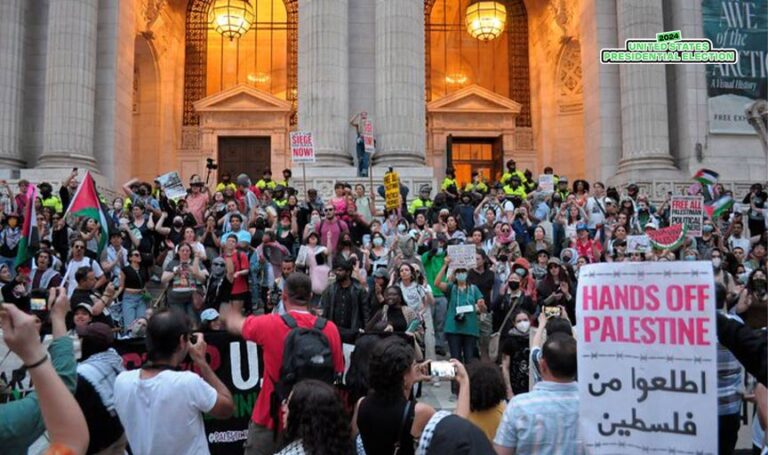Polls reveal Joe Biden’s stance on Israel-Hamas war isn’t the top priority for young voters

It’s that time again. Welcome back to the latest edition of our 2024 US presidential election weekly recaps, where we delve into the latest developments shaping the country’s political landscape. Today, we’ll explore the dynamics of young voters’ attitudes towards Joe Biden’s administration and some of the most pressing topics in today’s electoral climate.
The Israel-Hamas war has been a focal point in practically all recent political discussions, with both Democratic and Republican officials making visits to campuses like Columbia University to either endorse or oppose student demonstrations supporting those in Gaza. President Biden has also weighed in on the matter in his recent remarks.
“Civilians have been killed in Gaza as a consequence of those bombs and other ways in which they go after population centres,” Biden stated in a recent interview with CNN’s Erin Burnett on Erin Burnett OutFront, referring to 2,000-pound bombs that Biden paused shipments of last week.
Recent polling data from the Pew Research Center indicates that individuals aged 18 to 29 are three times more inclined to sympathise with Palestinians in the conflict compared to those over 65 and twice as likely as the general adult population. However, the data also indicates that the war is not many young voters’ sole or primary concern.
While these statistics clearly show that young adults sympathise more with Palestinians, this sentiment has not translated into prioritising the conflict as a key voting issue for the 2024 election. Despite many young voters actively protesting and boycotting brands associated with Israel to end the Palestinian conflict, economic issues tend to take precedence, aligning with broader voter trends.
So yes, economic concerns, particularly inflation, are dominating Gen Z’s top priorities. Because nothing screams “bright future for America’s youth” like grappling with inflation while the planet burns and student loan debt reaches astronomical heights.
Speaking with The New York Times about this internal conflict, Devon Schwartz, a 19-year-old student at the University of Texas at Austin, highlighted the complexity of this stance, acknowledging the issue’s importance but asserting it wouldn’t sway his vote towards Donald Trump.
Schwartz, who is actively involved in interfaith dialogue on campus, views the recent protests as significant but remains committed to voting for Biden despite desiring a more progressive stance on Israel. “I want to see policy changes from Joe Biden,” Schwartz stated. “I don’t want to vote for Donald Trump and then just see the same exact policies.”
Coral Lin, a student at Duke University, also voiced her thoughts to the publication, expressing disagreement with the Biden administration’s approach to the conflict but still noting plans to support him due to other policy considerations like climate change and democracy preservation.
“My friends and I, we all are very concerned about the war in the Middle East, and we disagree with the Biden administration’s agenda there, but I still know a lot of people who hold that view and still are voting for Biden,” Lin shared.
Clara Getty, from the University of Virginia, drew parallels between Biden’s challenges and those faced by former president Lyndon B. Johnson during the Vietnam War era, suggesting that despite shortcomings in one area, progress in others warrants continued support.
However, some express concern that Biden’s handling of the Israel-Palestine conflict indeed could deter young voters from supporting him in the upcoming election.
In response, Biden’s campaign spokesperson, Mia Ehrenberg, emphasised the president’s commitment to engaging with young voters on issues such as climate change, gun laws, and student loans.
As of now, the overall economic situation for young voters in the United States is distinctly bad, with over 4.2 million youths and young adults experiencing homelessness annually, including 700,000 unaccompanied minors. This stark reality underscores the pressing need for comprehensive policies and reflects the urgent concerns of America’s youth in the political landscape.





